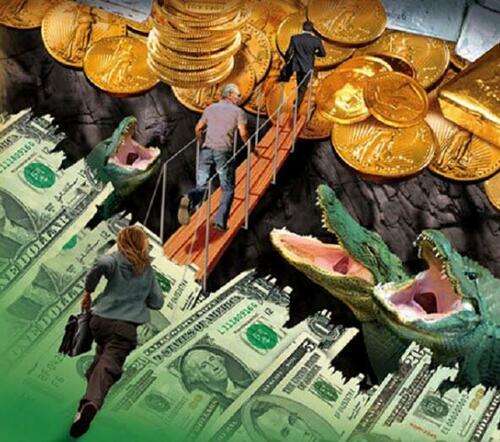This article was originally published by Tyler Durden at ZeroHedge.
In this all-encompassing conversation, Matterhorn Asset Management, AG partner, Matthew Piepenburg, meets with the Jay Martin Show to discuss the financial and political forces which daily strengthen the case and role of physical gold.
Centralization of information, politics, digital currencies, and reckless monetary policies is a theme that runs throughout this fascinating discussion.
Matthew addresses the consequences of a weaponized reserve currency and an equally politicized/weaponized (i.e., non-transparent/unaccountable) political and media environment to characterize an era of “splintered chaos” in everything from social fracturing to the slow then rapid implosion of financial markets. These forces enhance distrust from the bottom up colliding with policy failures from the top down. The subsequent collision historically suggests increased market, military and social stressors followed by less rather than more individual, market, and informational freedoms.
Based upon unsustainable debt levels and credit market indicators, Piepenburg foresees a world in which the USD has less rather than more influence in global payment and trade settlements. He tracks the bond market signals from the 2019 repo crisis to the recent collapse of regional banks to confirm credit risks which point to an increased need for synthetic liquidity and inevitable, as well as inflationary, policy reactions to deflationary recession forces.
Gold, of course, loves chaos and broken financial systems marching through and toward classic deflationary to hyper-inflationary cycles. These patterns and debt-strapped doom loops are clear to any and all who understand the math, history, and policies of debt-soaked sovereigns using inflation, currency debasement, and war as distractions from—and reactions to—monetary failures created from within.
Piepenburg and Martin pull on many thematic threads (de-dollarization, CBDCs, central bank gold stacking, negative real rates, petrodollar shifts, and Powell rate hikes) to make this pattern more apparent.
Watch the full discussion below:
Read the full article here


